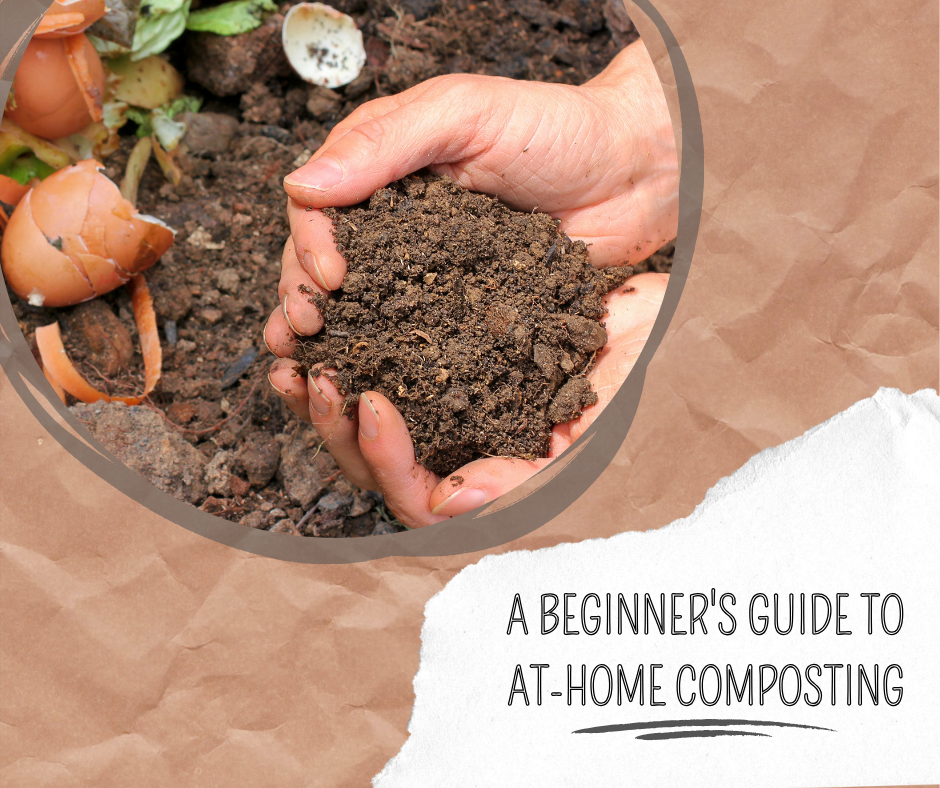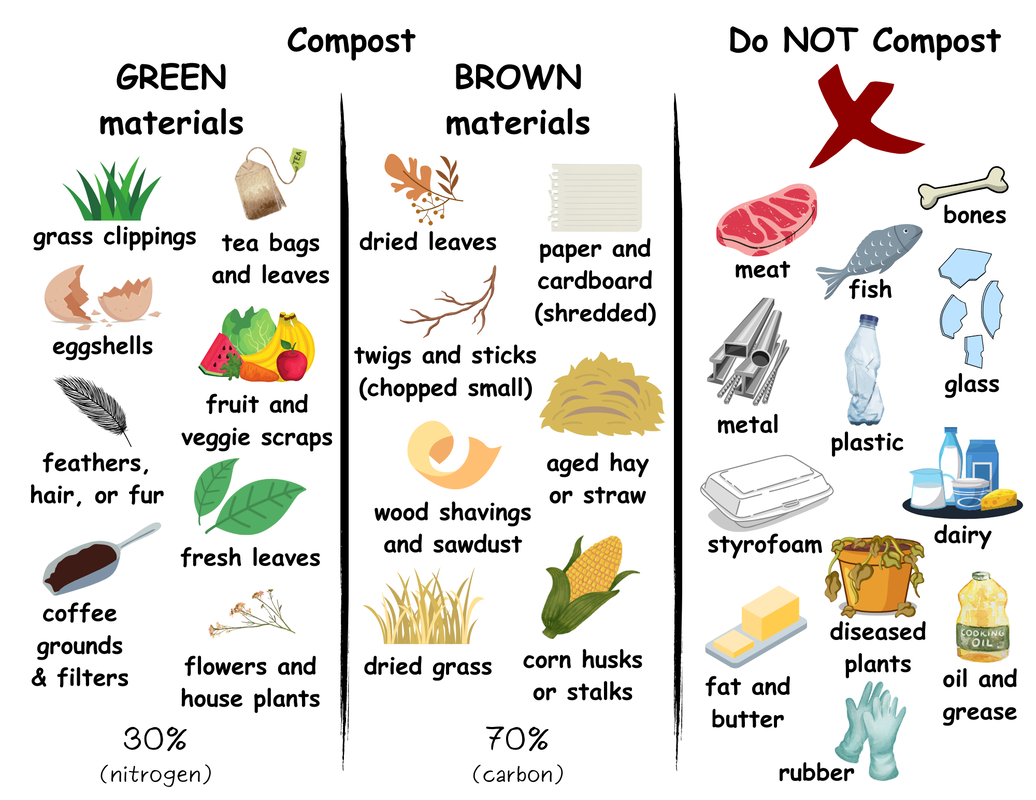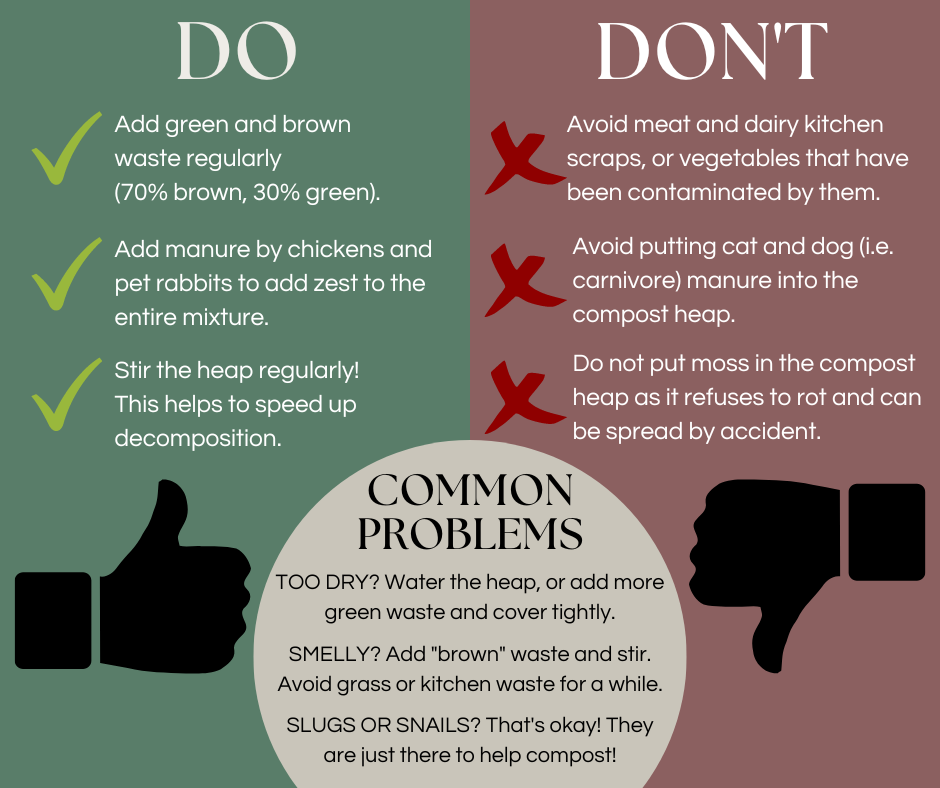Composting is one of the easiest ways to reduce your food waste and add nutrients to your garden.Not sure where to begin with composting? Read on to find out just how easy it is! What is composting?Composting is the aerobic (oxygen-required) method to decompose organic solid wastes. To put it in simpler terms, composting is nature's way of recycling! What are the benefits of composting?Among the many benefits of composting, one of the most important is that it diverts food waste from entering landfills. It is estimated that roughly 8% of greenhouse gas emissions come from wasted food. So, when less food enters the landfill, less gas is produced. In addition, composting provides soil with beneficial nutrients and microorganisms required to grow strong and healthy plants without the need for fertilizers and pesticides. It can also help to decrease soil erosion due to it's ability to retain large amounts of water. Where to Begin with CompostingComposting doesn't look the same for everyone, and there are no set rules to follow. We like to share our best recommendations based upon what has worked best for us through trial and error. Choosing a composter.Here are some questions to ask yourself when beginning your compost journey: - How much food waste do I (and my family) create? This will determine the size of composter needed to fit your needs. If you have a large family and tend to create sizeable amounts of fruit and veggie waste, then a larger composter will be needed. If you create only a small amount of organic waste, then a smaller composter will be perfect! - Do I want to buy a composter or make my own? Composters can be purchased at basically any home and garden store, or online. They come in all shapes and sizes to fit needs. Creating your own composter is easy and can be done with things you may already have! A simple tote with a lid and some holes drilled into it works perfectly as a composter. If you have the space, a composter may not even be needed! A simple compost pile will work just fine. - What do I want to use the compost for? If your goal is strictly to divert your organic waste from entering the landfill and not use it for your garden, you may want a larger composter as it will not be emptied as often. If your goal is to use the compost for your plants or garden, then choose one based upon your amount needs as it will be emptied more often. After you have chosen or made your composter, you are ready to dig in! Making compost.To begin making your compost, you will need to gather the organic materials that you want to decompose. These materials will be unique to each individual and family because there are so many things that can be composted! There are two types of materials that can be composted - green materials and brown materials. The most important part to remember is to create a good ratio between green materials and brown materials. We recommend creating a 50:50 ratio or a 70:30 ratio (70% browns, 30% greens). Creating these ratios of brown and green materials will increase decomposition times and decrease strong odors. What are green and brown composting materials?Green materials are things such as fruit and veggie scraps, fresh grass clippings and leaves, tea bags, non-diseased house plants, hair, and even fur! When you think of green materials, think "fresh" or "living." Brown materials are things such as dried grass clippings and leaves, shredded paper, sticks, and wood chips. When you think of brown materials, think "dried" or "dead." Stay away from putting any meat or dairy products, bones, butter or oil, styrofoam, plastic, rubber, metal, or anything else that will not decompose easily or readily into the composter. These products can cause strong odors and contaminate otherwise good compost. Composting Dos and Don'tsDO- Always add the brown and green materials in layers. This allows the brown (carbon-containing) materials to properly interact wit the green (nitrogen-containing) materials and be able to decompose efficiently. - Stir the heap regularly! After adding the materials in layers, wait 1-2 weeks, then stir the decomposing materials. Adding oxygen to the compost decreases odors and speeds up decomposition times. We recommend stirring the pile once every week or two. - Add water to the compost when needed. The perfect moisture level is between 40% and 60% - you can tell this just by looking at it! Compost should have the consistency of a damp, wrung sponge. - Place your compost bin or pile in an area that receives lots of sunlight. Heat speeds up the decomposition process, thus creating compost faster. Ensuring your bin or heap is in the sun will get things cooking, even in colder temperatures! - If possible, add rabbit or chicken manure to your compost to add some zest to the entire mixture! These types of manure will provide more nutrients to your plants! DON'T- Never place dog or cat waste into the bin or heap. Oftentimes, these animals take deworming medications that will destroy the microbes necessary for decomposition. Plus, yuck! - Avoid over- or under-watering your compost. Compost that is too wet will become stinky, possibly grow harmful bacteria, and have decreased decomposition times. Compost that is too dry will have slow or stopped decomposition times. Your compost should not be slimy and muddy, or dry and crumbly. Remember, damp, wrung sponge is optimal consistency! - Steer clear from adding diseased plants to your compost. Doing so may cause the disease to spread to your healthy plants. - Refrain from stirring the compost too often. Giving the microbes a chance to work is key to breakdown success! Remember, stirring the heap once per week, or every other week will be just fine. Harvesting and Using Your CompostCompost can take anywhere from one month to two years to complete, depending on moisture levels, temperatures, and how often you add materials. When completed, compost will appear as dark, earthy matter - similar to dirt! It will not look or smell like rotting materials anymore. You can harvest your compost anytime throughout the year; however, many prefer to use it in the spring (after last freeze) or in the fall (before first freeze). After your compost is complete, it can be used for several different parts of your lawn or garden, and it can even be stored for later use! Here are some things you can do with your completed compost:
Want to store your compost? It's simple! Put the finished compost in an open bag or loosely-lidded tote and place it in your shed, garage, under an overhang, etc. - any place that it won't receive a lot of moisture. Typically, the compost will last up to five years! Want to Learn More?
0 Comments
|



 RSS Feed
RSS Feed
